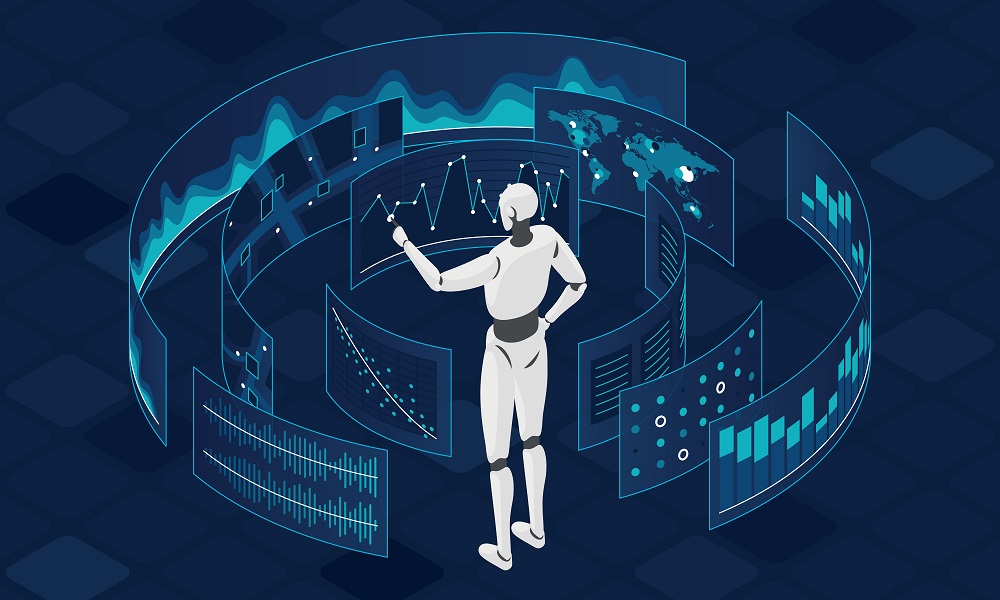Artificial intelligence (AI) is quickly becoming one of the most in-demand career fields. With so many industries being disrupted by automation, AI has the potential to become one of the most important tools for business owners. If you’re thinking about making the switch to AI, you should know a few things. This blog post will provide you with a rundown of the essentials of this exciting career field.
What is artificial intelligence?
Artificial intelligence (AI) is the process of creating a computer program that can perform tasks that normally would be performed by human beings. AI is used in many fields, including business, healthcare, and manufacturing. There are many different types of AI, but some common examples are machine learning and natural language processing. Machine learning refers to the ability of a computer program to learn from data and improve its performance over time. Natural language processing is the ability of a computer program to understand and respond to human language.
What are the benefits of working in AI?
The debate over whether artificial intelligence is a good career has been around for years, but the benefits of working in AI are clear. At its core, AI is about helping humans make better decisions. That means jobs in AI can help you solve problems and make your work more efficient. Additionally, AI offers unique opportunities to work on cutting-edge projects that could significantly change how we live and work. If you’re curious about the field and want to learn more about what’s available, here are some key benefits of working in AI:
1. Improved decision making: AI is designed to help people make more efficient decisions by providing them with data and analysis they can use to improve their thinking process.
2. Increased productivity: By automating tasks or processes, AI can save employees time and energy, leading to increased production levels.
3. Greater flexibility: With automation comes increased flexibility, which allows employees to take on different roles and pursue new interests without feeling hamstrung by rigid job requirements.
4. Greater insight: By using machine learning algorithms and other forms of artificial intelligence, employers can create tools that allow employees to see patterns or insights they may not have been able to find otherwise. This deep understanding can give employees an edge when competing for promotions or landing new jobs.
What jobs are best suited for artificial intelligence?
Artificial intelligence (AI) is a growing field with many potential career paths. Here are four jobs that are best suited for AI:
1. Data analyst. A data analyst uses artificial intelligence to analyze large amounts of data to find trends and patterns. This position requires strong analytical skills and knowledge of statistics.
2. Software engineer. A software engineer develops and tests the code for computer programs, systems, or applications using artificial intelligence technologies. They need extensive knowledge of computer programming languages, as well as experience working with artificial intelligence applications.
3. Research scientist. A research scientist uses artificial intelligence to develop new methods or models for analyzing data or solving complex problems. They need strong scientific and mathematical skills and knowledge of artificial intelligence technologies and application domains.
4. Marketing manager for Artificial Intelligence products/services. A marketing manager for AI products/services oversees the development and implementation of marketing plans for these products/services, which may include branding, strategy, target market identification, etc.). They need excellent strategic planning skills and knowledge about AI products/services marketplaces
Is artificial intelligence a good career?
There is no doubt that artificial intelligence (AI) has the potential to be one of the most revolutionary and impactful fields in all of the technology. As AI continues to develop, it has the potential to help us solve many major problems, including environmental concerns and global security threats. There are several reasons why AI could be a good career choice.
First, AI has the potential to revolutionize many industries completely. For example, hospitals could use AI to diagnose patients more accurately and quickly, insurance companies could use it to generate better risk assessments, and online retailers could use it to enhance customer service. In each of these cases, AI will considerably improve efficiency and accuracy.
Second, AI has the potential to create high-paying careers. According to Payscale.com, “The highest paying jobs in Artificial Intelligence require degrees in computer science or related disciplines,” – meaning that there is a lot of opportunity for those who want to pursue an AI career. Many analysts make over $130K per year – so there’s money available if you want it!
Finally, there are several reasons why people might find AI challenging and interesting. For example, some people enjoy working with complex systems and understanding how they work – this is required for many AI positions. Additionally, many jobs in AI require excellent problem-solving skills – something which can come in handy no matter what profession you choose.
Conclusion
After reading this article, I believe there is merit in pursuing a career in artificial intelligence. Though technology still has a way to go before it becomes mainstream, the potential for job growth and advancement is immense. If you are interested in pursuing a career in AI, keep up with current trends and developments to stay ahead of the curve.





